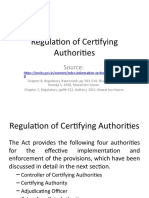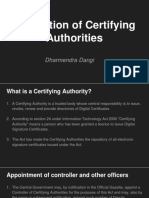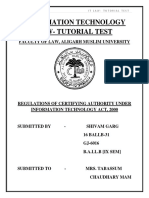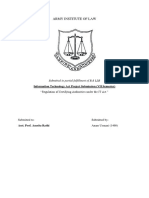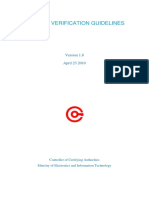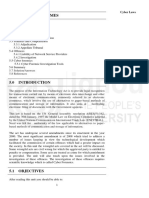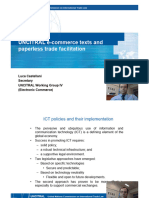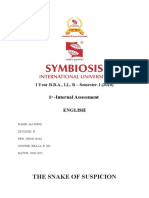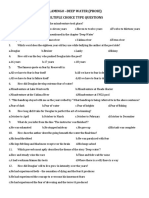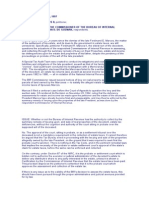0% found this document useful (0 votes)
48 views11 pagesCh-29 Regulation of Certifying Authorities
The document discusses the regulation of certifying authorities in India. It describes how the Central Government appoints a Controller of Certifying Authorities to license and regulate Certifying Authorities, which then issue Electronic Signature Certificates. It outlines the roles and responsibilities of the CCA and Certifying Authorities.
Uploaded by
Rashi singhCopyright
© © All Rights Reserved
We take content rights seriously. If you suspect this is your content, claim it here.
Available Formats
Download as PDF, TXT or read online on Scribd
0% found this document useful (0 votes)
48 views11 pagesCh-29 Regulation of Certifying Authorities
The document discusses the regulation of certifying authorities in India. It describes how the Central Government appoints a Controller of Certifying Authorities to license and regulate Certifying Authorities, which then issue Electronic Signature Certificates. It outlines the roles and responsibilities of the CCA and Certifying Authorities.
Uploaded by
Rashi singhCopyright
© © All Rights Reserved
We take content rights seriously. If you suspect this is your content, claim it here.
Available Formats
Download as PDF, TXT or read online on Scribd
/ 11





















